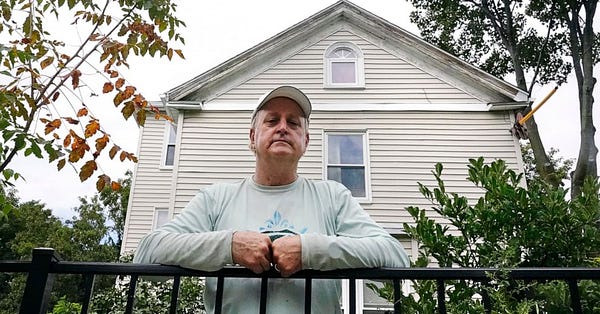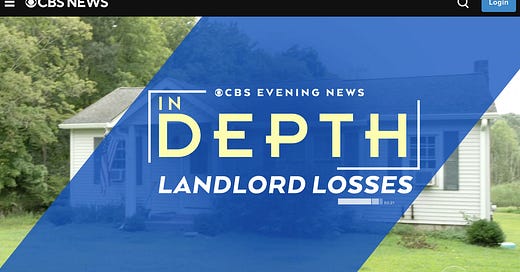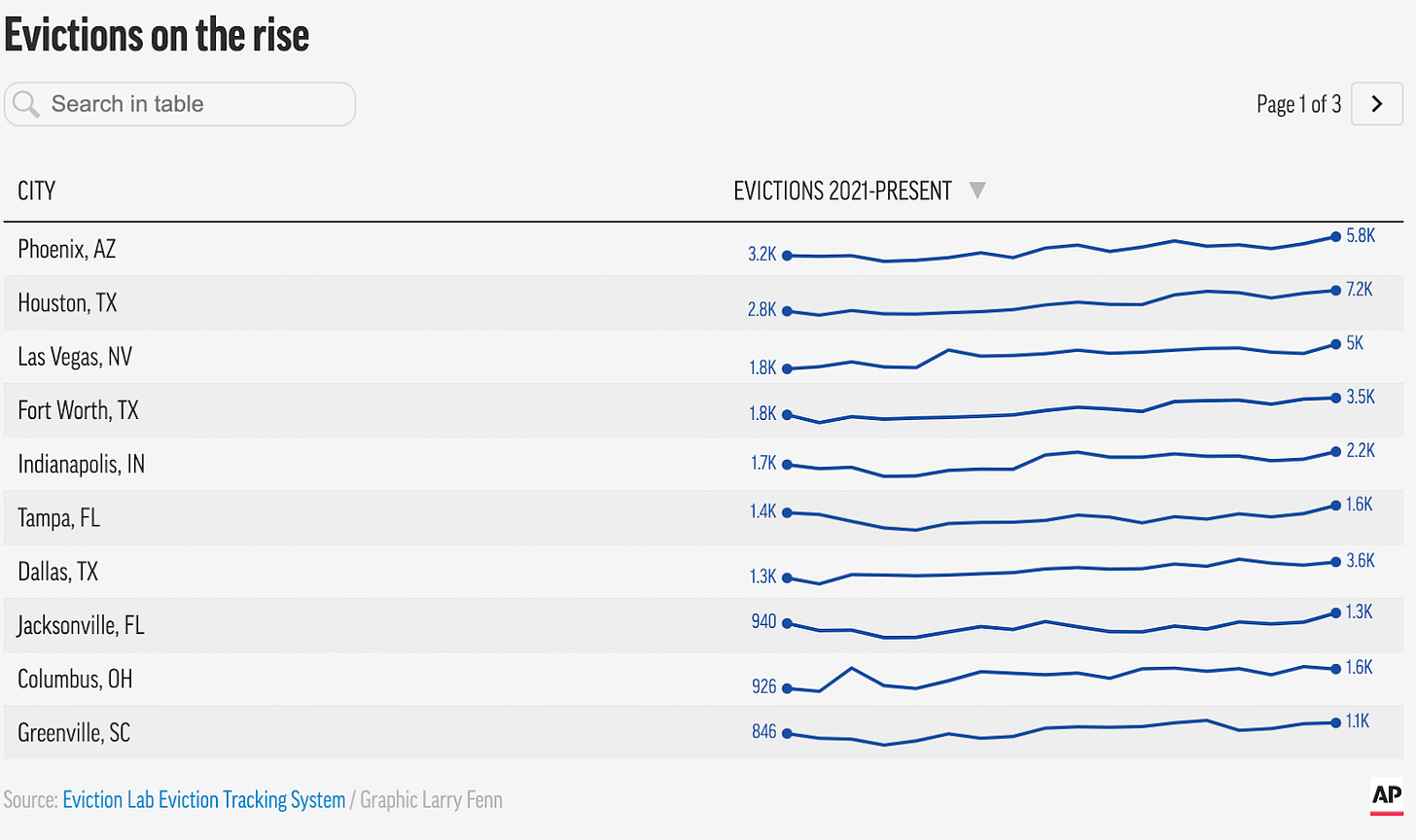TV News Is Ignoring the Eviction Crisis
After running nonstop sob stories about put-upon landlords in 2021, CNN, ABC News, CBS News, and NBC News have largely ignored the devastating spike in evictions in 2022.
A survey of TV news coverage in 2022 shows that major news networks ABC News, CBS News, and NBC News have not aired a single story focusing on the spike in evictions this year. And CNN has only run one segment on the crisis in its 5,400+ hours of programing, and that coverage placed the blame largely on inflation and a lack of housing supply.
As federal eviction protections were overruled by the Supreme Court last year, and state protections have slowly sunsetted, recent reporting by the Associated Press and NPR shows how dire the situation has become for millions of renters.
Via The AP:
According to The Eviction Lab, several cities are running far above historic averages, with Minneapolis-St. Paul 91% higher in June, Las Vegas up 56%, Hartford, Connecticut, up 32%, and Jacksonville, Florida, up 17%. In Maricopa County, home to Phoenix, eviction filings in July were the highest in 13 years, officials said…
Some legal advocates said the sharp increase in housing prices due to inflation is partly to blame. Rental prices nationwide are up nearly 15% from a year ago and almost 25% from 2019, according to the real estate company Zillow.
Rental vacancy rates, meanwhile, have declined to a 35-year low of 5.8%, according to the Census Bureau. A report last month from the National Low Income Housing Coalition found that a tenant working full time needs to make nearly $26 per hour on average nationally to afford a modest two-bedroom rental and $21.25 for a one-bedroom. The federal minimum wage is $7.25 an hour.
Evictions are on the rise in almost every major American city:
The combination of inflation, skyrocketing rents, the unceremonious elimination of pandemic aid, and the blunt use of interest rates to drive down workers’ wages is having a devastating effect on working people’s ability to put a roof over their heads.
The crisis is hitting black renters especially hard. A whopping 16% of Black renters said they had been either evicted or threatened with eviction in the past year, according to a survey conducted by NPR, Robert Wood Johnson Foundation, and Harvard T.H. Chan School of Public Health poll. Almost 10% of African Americans—or 4 million people—have been evicted or threatened with eviction in the past year, and our major TV news outlets don’t consider this a news story worthy of a much attention at all.
Contrast this with the dozens of segments these outlets ran last year lamenting the plight of the poor, put-upon “small landlords” who were being negatively harmed by the eviction moratoriums:




Thus far in 2022, little-to-no such personal sob stories have been crafted to advance the cause of the millions of renters being kicked out of their homes. In June, CNN ran one story that vaguely covered “rent increases” and their effects on the racial wealth gap, but made little mention of evictions or the end of the eviction moratorium, and put the blame largely on “inflation”—a more political abstract concept without any particular author or bad actor. ABC News and CBS News had online-only segments that also discussed “rising rents,” but they were not aired on TV where most people can actually see content. CNN did a cutesy “viral video” segment about a woman who stopped an illegal eviction using a Ring camera that was far more an advertisement for Amazon and local police departments’ co-branded surveillance regime than a story about evictions. One 60 Minutes segment from March covered rising rents but, like others, blamed the problem on a lack of supply, making scant mention of rent control or eviction protections as a solution, and featuring interviews with two real estate brokers at RedFin and a multimillionaire corporate home speculator, Gary Berman. While she did talk to two generic renters, 60 Minutes Correspondent Lesley Stahl interviewed zero housing activists or anyone that would offer a solution that didn’t involve simply “building more homes.”
While building more affordable homes is certainly important, there are steps—from extending state eviction moratoriums to rent control—that states and local officials could offer now to help those being kicked out of their homes. Abstracting out the problem to years-long home-building projects and agency-less “inflation” gives the deliberate impression there’s no real political solution in the short term. Contrast this with last year’s “small landlords forced into poverty” segments, which had a clear and immediate political ask of ending state and federal eviction moratoriums
As we noted at The Column last September, the sunsetting of key pandemic-related aid—including rental assistance and the eviction moratorium—happened with virtually no public discussion, and the Sunday Morning news programs and major editorial boards ignored the topic altogether. Instead, media consumers are given a torrent of stories about the horrors of Visible Poverty, with the implicit—and sometimes explicit—demand that lawmakers further criminalize the indigent. Rarely are the sharp rise in evictions and quiet sunsetting of Covid-era renter protections mentioned as a culprit driving homelessness, crime, and desperation. It’s just a vague sense we need more housing construction.
Stories about being thrown out of one’s home are simply factored in. They’re not perceived as particularly newsworthy because this violence is routine and within the bounds of “the law” and our social norms. The victims are powerless, don’t work for media outlets, don’t know anyone who does, and certainly don’t run in the social circles of those who own media. Just as we were fed dozens of stories about “cancel culture” harming elite academics and media types, while the hundreds of thousands of incarcerated people being tortured by boiling inside our prisons were ignored, the faceless millions being kicked out of their homes are not in the club—and thus not important. Evictions are baked into the business logic of the real estate industry that funds much of our media and, more importantly, are essential to our precarity-based model of capitalism, in which the fear of destitution is central to disciplining labor. So the eviction crisis will churn on, worsening until we’ve “returned to normal” and then some, with almost no media notice.




